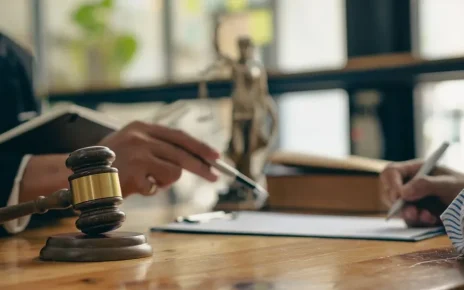Any lawyer, including those at the Law Offices of Steve Gimblin, will prioritize communicating with clients. From sitting down during the initial consultation to discussing trial strategy, your relationship with your attorney matters. But not communicating well with your attorney can lead to problems, especially if you’re misleading them. If you worry that you are, here are four steps to stop misleading your attorney so you can finally win the lawsuit you set out to win.
Get Right to the Point
Nothing worries an attorney more than a rambling client who fails to get to the point. While telling your story is important, your lawyer wants to hear specific details. Burying those details underneath a half-dozen mini-stories will only make it that much harder for your lawyer to understand. So, leave out the small talk after a bit and keep your head focused on the game. Your attorney may be charging you by the hour, so time is money.
Show Confidence in Your Body Language
Are your shoulders square and your head held high? Are you making good eye contact and using facial expressions that indicate you understand what your attorney is saying? If you’re doing these things, then great. Showing confidence in your body language will help your attorney feel confident in you as a plaintiff. An attorney that can represent a confident client will have a lot of time to build a case on their behalf. That said, negative body language like frowning, avoiding eye contact, and slouching are signs you’re not confident in your story. Remember, your lawyer can best work with clients who truly believe in themselves from the beginning.
Ask for Clarification Before Answering
Your attorney will have questions while building your case. Before even offering an answer, why not ask for clarification to make sure you understand? Some types of interviews can be uncomfortable for the client to experience, particularly if you’re a victim of a crime or personal injury. Rushing to give irrelevant answers to your attorney’s questions will steer the conversation in a different direction, away from the most important details that exist. For clarification regarding legal terminology or if you simply don’t understand how something works, be sure to ask away. Your lawyer cares about you knowing.
Tell The Truth for Your Protection
There’s no sense keeping the truth from your attorney. And lying flat-out will only leave you and your lawyer both feeling embarrassed–and walking away without a win. When your attorney asks for details relevant to your case, even if the truth is uncomfortable, it can help your lawyer prepare a sturdier case overall. More often than not, cases slip away because lawyers don’t have all the facts, so they can’t come to trial prepared, so the defendant will win. If you want your attorney to help you, be as truthful as possible. At least then, you’ll have a solid case to present to a judge.
Attorneys at the Law Offices of Steve Gimblin know how important communicating is with clients. To best ensure a fair and winning trial, practice honesty and stick to the facts, then be sure to show confidence in your body language as soon as you enter the office. Your attorney won’t know you when you two are first getting set up. So, wouldn’t you want to ask questions for clarification before steering the conversation in the wrong direction? Take these steps if you want your relationship with your attorney to be ideal. Effective communication is a must for attorney-client relationships.





